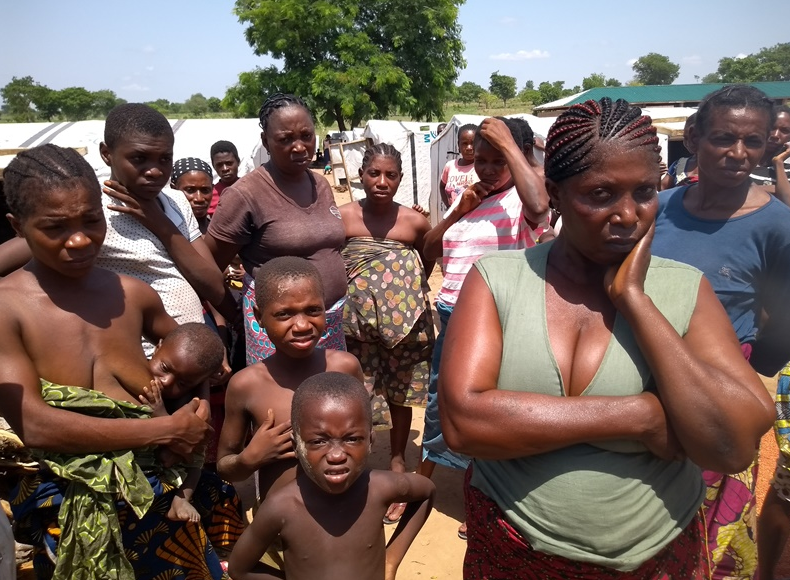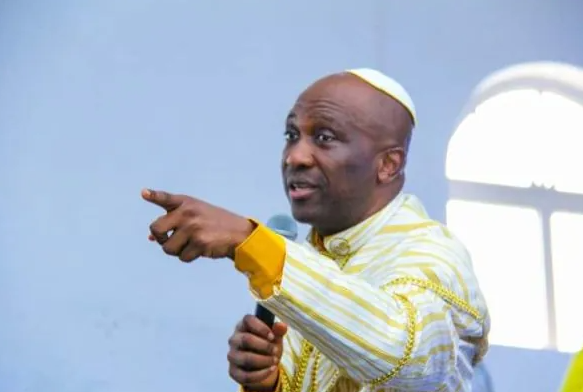Advertisement
A leading cleric in Benue State stated his opinion on the Benue crisis and has ignited controversy and concern after accusing powerful forces of orchestrating what he terms a systematic campaign of ethnic cleansing and land grab in central Nigeria. His startling claims cut deep into longstanding conflict narratives, exposing the complex interplay of spiritual, political, and economic motivations driving the violence.
Table of Contents
1. Benue Crisis Violence: Not random clashes – but a calculated purge?
Evangelist Shaala Ukaa, a respected religious leader, described the recent spate of killings not as isolated herder-farmer clashes but as “a calculated attempt to erase a people, an indigenous heritage, off the face of this nation.” He highlighted attacks in Guma, Logo, Ukum, Kwande, Katsina-Ala, Agatu, and others, warning:
“Entire communities … turned into war zones. Fields once rich with crops now lie soaked in blood. … This is genocide in slow motion.”

2. Dark motives: Land, religion, power
Cleric Ukaa contends the attacks are driven by more than survival:
- Land-grabbing: Fighters allegedly aim to seize Benue’s fertile farmland.
- Demographic shift: He warns of a designed effort to change the region’s religious and ethnic identity.
- Spiritual overlay: Another cleric, Dr. Paul Ameh, previously criticized authorities for ignoring spiritual dimensions, calling insecurity in Benue “spiritually sponsored.”
3. Human impact on Benue crisis: mass displacement and devastation
Recent massacres underscore the urgency:
- The June 16–17 attack in Yelewata claimed up to 150 lives, destroying homes and markets.
- Earlier incidents, like the May 27 killings in Tyolaha and Ahume, added dozens more bodies to the toll.
- Historically, over 500 Christians were killed in Benue in 2023, with more than 239 lives lost in early 2024 alone.
The violence has displaced more than a million people, especially in Gwer-West, ravaging food production and crippling livelihoods.
4. Political undercurrents: hidden hands and political gain
Civil society groups have pointed fingers upward. A coalition accusing some federal lawmakers and politicians of “sponsoring crisis” to force a state of emergency or destabilize Benue has intensified suspicions. Meanwhile, Archbishop Chivir Chianson and other bishops have urged President Tinubu to treat Benue as a national emergency.
5. Government response on Benue Crisis: action—or just words?
- President Tinubu expressed shock, promised a crackdown, and visited Makurdi, though critics say this came too late.
- Security and crisis experts, including the Institute for Peace and Conflict Resolution (IPCR), have called for land reforms, transparency, and local conflict structures—rather than emergency rule—to address root issues.
6. What’s next for Benue? Pursuing justice amid ongoing fear
Cleric Ukaa warns silence equals complicity and demands:
- Prosecution of those responsible.
- Independent investigations into the events.
- International attention to what he calls emerging genocide.
Despite prayer vigils and church-led solidarity, Benue remains fragile. With the rainy season ahead, time is running out to fortify communities from further harm.
🔍 Son Media’s Take
The cleric’s statements are powerful and polarizing—but not unprecedented. Benue’s history is marked by repeated massacres: from 2016’s Agatu massacres (300–500 killed) to 2022 village attacks. Still, this is one of the first times a high-profile religious figure has directly framed the crisis as ethnic cleansing, implicating coordinated land seizure and demographic engineering.
The revelations highlight three key truths:
- The issue is multi-faceted: It isn’t just herders vs. farmers but involves political ambition, shifting power dynamics, spiritual narratives, and poor state presence.
- Impunity undermines peace: Broad mistrust stems from repeated failures to punish perpetrators.
- Fixation on emergency rule could deepen divisions, unless accompanied by land policy reform, reconciliation, and genuine justice for victims.
Advertisement



Human being